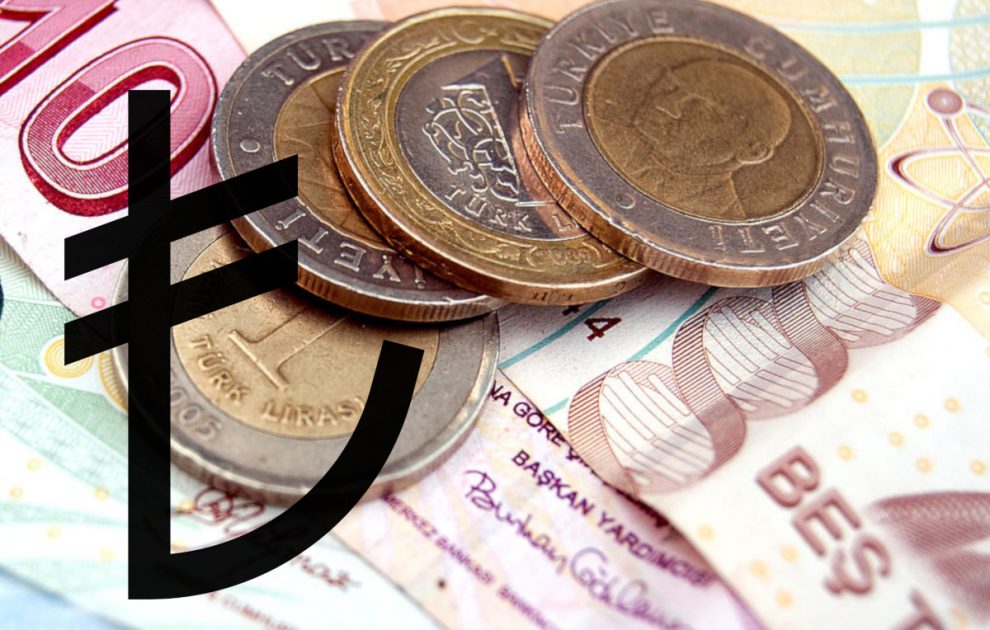Turkey’s Central Bank and its private banks are strong enough to meet short-term shocks and revolve foreign debt
With rapid foreign exchange fluctuations in recent weeks, it is now clear that Turkey is going through an economic turbulence [1].
Turkey will certainly suffer due to decreasing purchasing power and a likely decline in the growth rate.
However, Turkey has enough reserves to avoid a market collapse, and this may be a valuable opportunity for Turkey to restructure its economy into a healthier growth model based on higher savings and a trade surplus.
As in all emerging economies [2], the Turkish lira has weakened recently upon monetary tightening by the FED and other central banks in the developed world.
Following a period of relatively cheap and abundant credit since the 2008 global financial crisis, now foreign investors are moving away from emerging market assets which they see as high risk for low return.
Turkey’s problems seem to be further deepened following the tension with the U.S. on regional politics. Recently, U.S. President Donald Trump approved the doubling of tariffs on steel and aluminum from Turkey [3], and threatened Turkey with further sanctions.
Combined with the contraction in the global liquidity, the lira has dropped even more.
But, it is not yet true to speak of a full-fledged “crisis” in terms of its reflection on the real economy.
“Confidence” remains a key barrier to this process sparking into a real economic crisis, which could involve corporate closures, job cuts, and IMF-centered restructuring of the government budget.
The perception of “crisis” itself is known to be one of the most important triggers of economic crises.
As we have seen in the Latin American crises in the 1980s and the 1997 Asian crisis, financial turmoil, which can be offset in a much more limited framework, may deepen after panic and fear in the markets.
The most important advantage of Turkey in that respect is political predictability.
Turkey has been through elections quite recently, and the fact that the Turkish economy will be managed effectively and according to one single plan over the next five years provides Turkey with an important advantage.
The government, especially after the elections, announced measures [4], including fiscal tightening, to cool off the economy and reduce inflation, while reassuring capital markets that radical steps, such as capital control or foreign exchange regime change, are off the table.
At the same time, other regulatory agencies announced steps to boost household savings [5] and limit speculative capital movement [6].
Maybe even more importantly, both Turkey’s Central Bank and Turkish private banks are strong enough in terms of capital structure and balance sheets to meet the short-term shocks and revolve foreign debt [7] even in the case of a total market collapse. Therefore, investors have strong reasons to be confident about the long-term prospects of the Turkish economy.
However, Turkey continues to suffer “speculative attacks” [8] in the financial markets. Speculators are benefiting from the volatility in the Turkish economy and are achieving high profit margins with rapid capital movements.
These attacks, of course, are not the initiators of the process, but rather deepening factors. One way or another, they cause rapid value changes in the lira, which leads to deterioration in the real economy.
The ongoing process seems to have been triggered by political tensions, mainly because of the dispute between the U.S. and Turkey.
After all, countries with much higher debt stocks than Turkey do not face a similar situation.
The crisis in the Turkish-U.S. relations is most likely to be temporary, and its effects on the economy will be marginal in the long-run but Turkey has learned an important lesson.
Given its geo-political conditions, Turkey may need to adopt a growth model which depends more on domestic resources and less on short-term capital movements.
There are undoubtedly structural factors of the economic turmoil, which may involve the long-lasting current account deficit, the increasing debt stock, and low savings rates.
While the immediate triggers of the crisis are essential to combat the current fluctuation, the structural problems should be the subject of a long-term economic analysis and dealt with in due course.
The government of Turkey seems intent on achieving this transformation, whether the crisis with the U.S. continues or not.
As always, crisis comes with opportunities. As the world enters a period of trade wars, the depreciation in the Turkish Lira helps to reduce imports while supporting exports [9], and allows for reduced consumption and increased savings.
Export-oriented production [10] will take precedence in the economic agenda and the economy will depend more on its internal resources.
In this process, the Turkish economy can transform into a healthier growth model based on high savings and a current account surplus.
The short-term volatility will eventually decline, market predictability will gradually increase, and the debt stock will be restructured. With the announcement of the medium-term plan, the future projection of the Turkish economy will also become clear.
In the end, the ongoing process is not a cliff but has the potential of being a bend through which Turkey can move towards a more balanced and strong economy.
* Opinions expressed in this article are the author’s own and do not necessarily reflect the editorial policy of Anadolu Agency.
Source AA
[1] https://www.reuters.com/article/uk-global-forex/dollar-hits-13-month-high-as-turkey-crisis-rumbles-on-idUSKBN1L004O[2] https://www.bloomberg.com/news/articles/2018-08-15/turkey-slaps-additional-tax-on-american-goods-including-cars
[3] https://www.nytimes.com/2018/08/10/us/politics/trump-turkey-tariffs-currency.html
[4] https://www.trtworld.com/turkey/turkey-aims-to-secure-economic-growth-and-tackle-inflation-19497
[5] https://www.aa.com.tr/en/economy/turkey-limits-installment-plans-for-credit-cards-loans/1231759
[6] https://www.ft.com/content/d7e0eb2a-a051-11e8-85da-eeb7a9ce36e4
[7] https://think.ing.com/articles/turkish-banks-macro-confidence-remains-key/
[8] https://www.reuters.com/article/us-turkey-economy-isbank/turkish-isbank-ceo-says-turkey-facing-serious-speculative-attack-idUSKBN1KY0RA
[9] https://www.bloomberg.com/news/articles/2018-07-11/mobius-sees-trade-war-as-just-a-warm-up-act-for-financial-crisis
[10] http://www.hurriyetdailynews.com/turkey-announces-183m-package-for-industrialists-135781







Add Comment